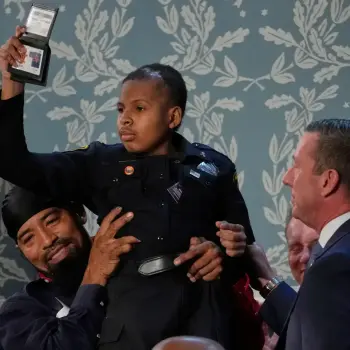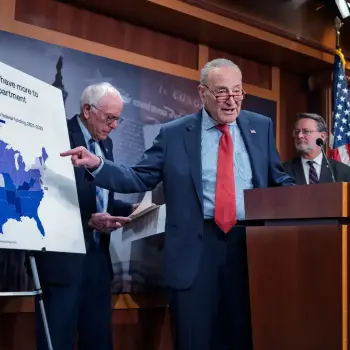Donald Trump has been elected the forty-seventh president of the United States.
- The New York Times estimates he will win the Electoral College 312–226.
- At this writing, he is leading the popular vote 51 percent to 47 percent.
- Republicans are projected to take back the US Senate and posted early gains as they seek to retain control of the House of Representatives.
- Of the US counties with nearly complete results, more than 90 percent shifted in favor of Mr. Trump.
As more is known, we will have ample opportunity to analyze this historic outcome. For today, let’s step back for some larger perspective, seeking to view our nation and this moment through the lenses of history, culture, and Scripture.
Convening in the church choir loft
In 1903, President Theodore Roosevelt issued a Thanksgiving Day Proclamation in which he stated: “In no other place and at no other time has the experiment of government of the people, by the people, for the people, been tried on so vast a scale as here in our own country.” His words are still true 121 years later.
America has now conducted its sixtieth presidential election, beginning with George Washington’s unanimous victory in 1789. However, our system of self-governance goes back much further: the colony of Jamestown elected “burgesses” (citizens who represented a “borough” or neighborhood) in 1619. The group then convened in the church choir loft.
Elective democracy both expresses and forges our national character. It is the natural outgrowth of our founding creed that “all men are created equal,” offering us a way to govern ourselves through a system that constrains autonomous authority while rewarding consensual leadership and morality.
However, it seems that the bonds of trust essential to our democratic experiment are weaker than at any time in my lifetime.
- Before yesterday’s election, security fencing was erected around the White House, the US Capitol, and Vice President Kamala Harris’ residence in Washington, DC.
- A large network of activists organized to monitor the elections, seeking either to protect the integrity of the results or to promote false claims of fraud, depending on your perspective.
- Survivalist communities have been established around the country, storing supplies and preparing for what they think could be a second civil war.
- Fears about the future of the nation are now our highest source of stress.
What explains such distrust and disillusionment?
Beware the “cult of happiness”
America’s founders intended our system of checks and balances to prevent a return to monarchy through unchecked individual power. But fallen human nature, with our “will to power” and drive to be our own gods (Genesis 3:5), cannot be fully constrained by human governance. Laws cannot enforce morality; politics cannot change human character.
In addition, today we can employ a vast array of tools for wielding power in ways the founders could never have envisioned. Social media platforms give our personal opinions unfiltered access to the world; artificial intelligence enables heretofore unimaginable tools for deception; advances in genomics could equip us to “edit” babies and “improve” our species.
Not to mention the growing secularization, materialism, and commercialization of our post-Christian society. In a brilliant essay analyzing our cultural moment, Walter Russell Mead warns:
The cult of happiness as interpreted by a society organized around the excitation and satisfaction of demand in a consumer economy is one of the most destructive features of the contemporary world.
Clearly, Mr. Trump is facing monumental challenges to the vibrancy and even the validity of our democracy. What can Christians do to help most effectively?
Where religion “ought to be brought”
Charles Spurgeon stated:
“I often hear it said, ‘Do not bring religion into politics.’ This is precisely where it ought to be brought.”
How do we “bring religion into politics” in our post-Christian, even anti-Christian culture? By first bringing politicians to our Lord. We are assured, “The prayer of a righteous person has great power as it is working” (James 5:16). To this end, I invite you to offer these biblical prayers for our president and nation:
- Pray for President Trump to seek God’s wisdom and to lead with biblical priorities and a servant’s heart. Pray for God to use him to unify our nation and to protect him and his administration from evil and to empower them for good (1 Timothy 2:1–2).
- Pray for Congress and other elected leaders to be women and men of godly character who set aside personal and partisan agendas to work together for the common good (John 13:14).
- Pray for America’s Christians and Christian leaders to be people of prayer, humility, and grace. Ask that we be empowered to speak the truth to our fallen culture in love (Acts 4:29–31; Ephesians 5:18).
- Pray for all Americans to honor our leaders, love each other, and “fear God” (1 Peter 2:17).
- Pray that you would be the change our nation needs to see today (Romans 12:1–2).
After thanking God for the provisions of liberty extended to America, Theodore prayed “for strength, and light, so that in the coming years we may with cleanliness, fearlessness, and wisdom, do our allotted work on the earth in such a manner as to show that we are not altogether unworthy of the blessings we have received.”
To this end, he prayed that “our hearts may be roused to war steadfastly for good and against all the forces of evil, public and private.”
Would you take a moment right now to pray his words for yourself, our president, and our nation?
NOTE: For more on the urgency of this cultural moment, please see my latest website article, “Is God on the ballot or are we? A reflection on divine judgment and our national future.”
Wednesday news to know:
- Netanyahu fires Gallant, names Israel Katz as defense minister
- “Walking pneumonia” is surging ahead of cold and flu season
- Ukraine’s Zelenskiy says clashes with North Korean troops “open page” to instability
- Tropical Storm Rafael expected to become a hurricane
- On this day in 1860: Abraham Lincoln elected president
*Denison Forum does not necessarily endorse the views expressed in these stories.
Quote for the day:
“Pray for great things, expect great things, work for great things, but above all pray.” —R. A. Torrey












